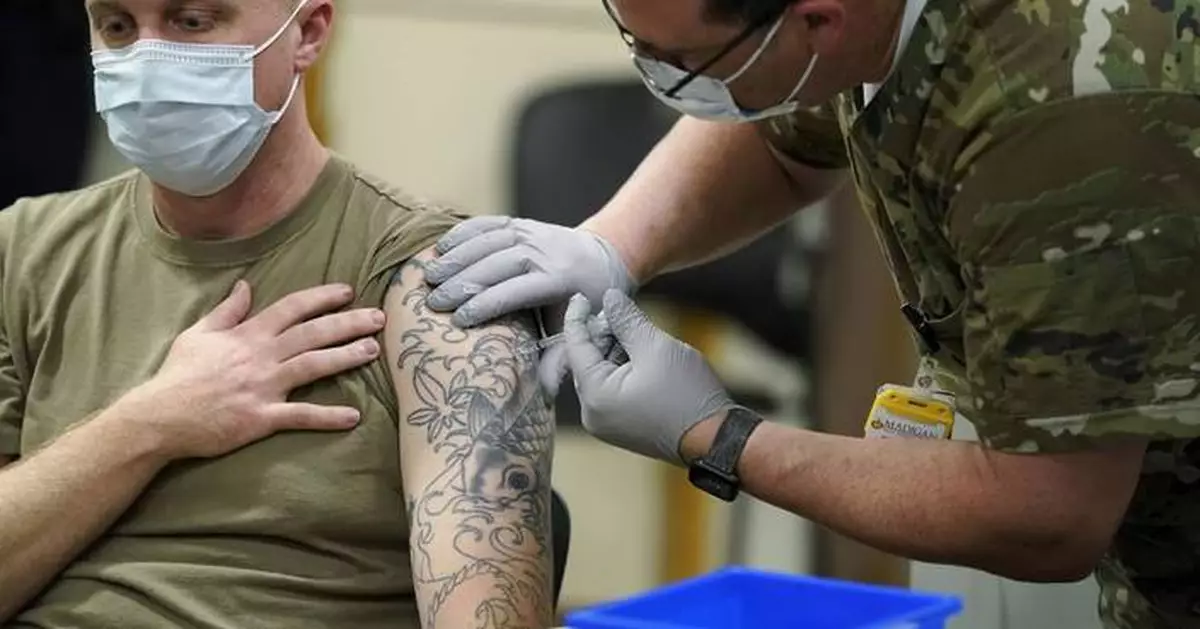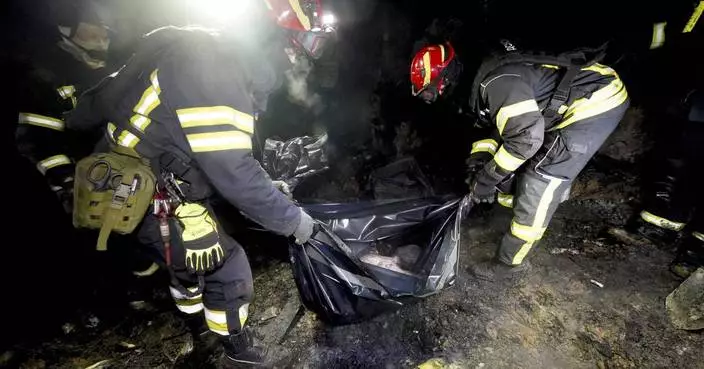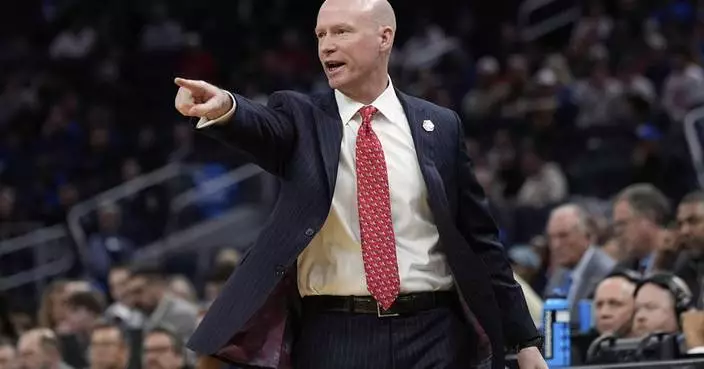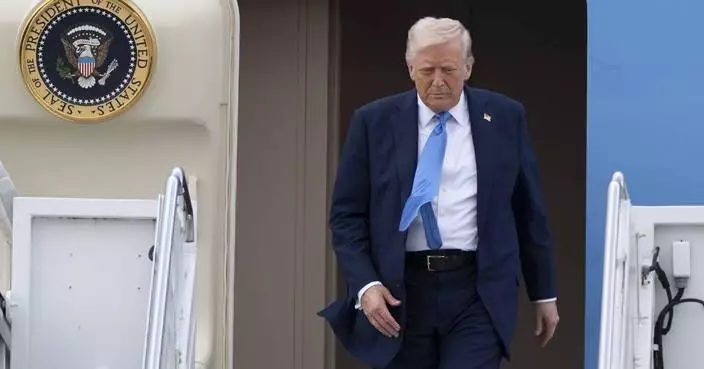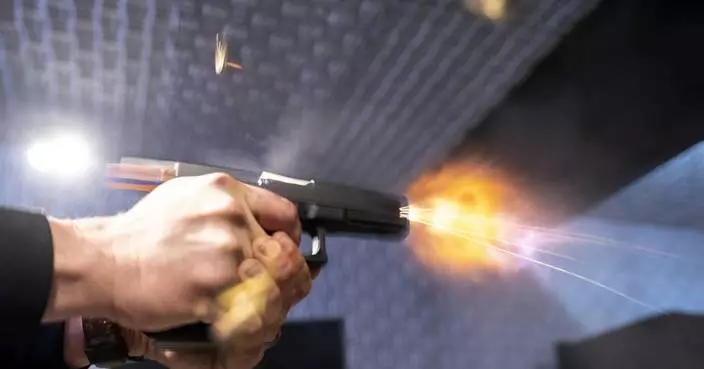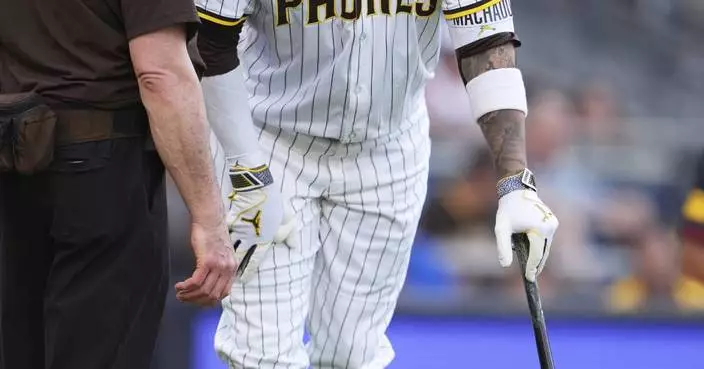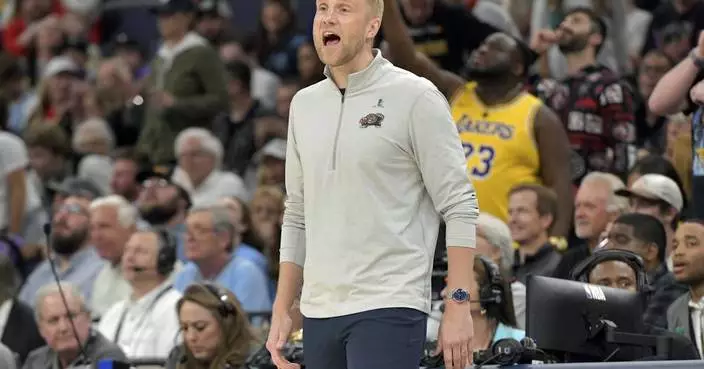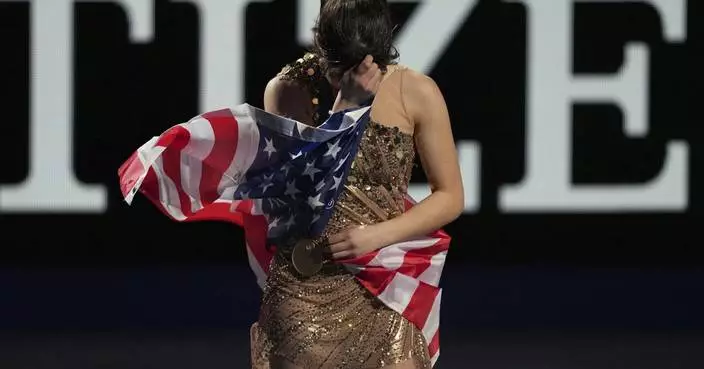WASHINGTON (AP) — The Defense Department has told the military services to reach out once again to service members who were forced out or voluntarily left the military because they refused to get the COVID vaccine and see if they want to reenlist.
The directive reflects the executive order signed by President Donald Trump a week after he took office, and it says that all service members who opt to return to the military will have to reenlist for at least two years.
According to a memo released on X, Darin Selnick, who is working as the defense undersecretary for personnel, said the vaccine mandate was an “unfair, overbroad, and completely unnecessary burden” on service members. It directs the services to set up a program to contact troops and begin doing so in two months.
At least 8,200 troops were forced out of the military in 2021 for refusing to obey a lawful order when they declined to get the vaccine. The military services sent out notices in 2023 to all troops discharged over the vaccine, advising them they could return to the military, but just 113 have reenlisted. Defense officials said at the time that many troops appeared to use the vaccine mandate as a way to get out of their service obligations quickly and easily.
It's unclear how many more may now be interested, since this new offer will allow eligible troops to come in at their previous rank and give them back pay, benefits and bonuses, as long as they meet all requirements for the reinstatement. Officials have not provided any cost estimates.
To return, all would have to meet weight, fitness, medical and other requirements, and they could be refused if they now have a criminal record or other disqualifying factor. Officers would have to get recommissioned, which is a simple appointment process.
The memo directs the services to “broadly apply waiver authorities to permit maximum eligibility, as appropriate.” And, in a highly unusual move, only very senior civilian leaders confirmed by the Senate will have the authority to reject a waiver request.
In addition, any recommendation to reject a service member’s request for reinstatement must be sent to the secretary of that service, and that authority cannot be delegated to anyone else. Traditionally waivers or other similar decisions are made at much lower levels.
The services will have 30 days to identify those who were forced out “solely” for refusing the vaccine order, and within 60 days must begin a program to contact them.
Once service members receive the estimate of back pay and other compensation, they will have 60 days to decide whether to return to the military. The offer is only good for one year from the date of the memo, which was Feb. 7. It wasn't posted publicly until late Thursday afternoon.
Service members must go through screening through the Boards for Correction of Military/Naval Records process. The memo directs the boards to move swiftly and give priority to COVID-related applications.
Troops who left the service voluntarily to avoid the vaccine may also seek reinstatement but must submit a written statement saying they left for that reason. They will not receive back pay, but will have to commit to a two-year reenlistment.
According to the services, 3,748 Marines were discharged, and 25 opted to re-enlist since the 2023 offer went out; 1,903 Army soldiers were discharged, and 73 returned; 1,878 sailors were discharged and two returned; 671 airmen were discharged and 13 returned.
The Pentagon made the COVID-19 vaccine mandatory in August 2021 for all service members, including the National Guard and Reserve. Then-Defense Secretary Lloyd Austin said getting the vaccine was critical to maintaining a healthy force prepared to defend the nation.
The Pentagon dropped the mandate in January 2023.

FILE - The Pentagon is seen from Air Force One as it flies over Washington, March 2, 2022. (AP Photo/Patrick Semansky, File)

FILE - Staff Sgt. Travis Snyder receives the first dose of the Pfizer COVID-19 vaccine given at Madigan Army Medical Center at Joint Base Lewis-McChord in Washington state, Dec. 16, 2020, south of Seattle. (AP Photo/Ted S. Warren, File)
WASHINGTON (AP) — A judge challenging the outcome of his North Carolina Supreme Court race was photographed wearing Confederate military garb and posing before a Confederate battle flag when he was a member of a college fraternity that glorified the pre-Civil War South.
The emergence of the photographs comes at a delicate time for Jefferson Griffin, a Republican appellate judge who is seeking a spot on North Carolina's highest court. Griffin, 44, is facing mounting criticism – including from some Republicans – as he seeks to invalidate over 60,000 votes cast in last November’s election, a still undecided contest in which he is trailing the Democratic incumbent by over 700 votes.
The photographs, which were obtained by The Associated Press, are from when Griffin was a student at the University of North Carolina at Chapel Hill from 1999-2003 and a member of the Kappa Alpha Order, one of the oldest and largest fraternities in the U.S., with tens of thousands of alumni.
Griffin said he regretted donning the Confederate uniform, which was customary during the fraternity's annual “Old South” ball.
“I attended a college fraternity event that, in hindsight, was inappropriate and does not reflect the person I am today,” Griffin said in a statement. “At that time, like many college students, I did not fully grasp such participation’s broader historical and social implications. Since then, I have grown, learned, and dedicated myself to values that promote unity, inclusivity, and respect for all people.”
One of the pictures, taken during the 2001 ball, shows Griffin and roughly two-dozen other fraternity members clad in Confederate uniforms. Another photograph from the spring of 2000 shows Griffin and other Kappa Alpha brothers in front of a large Confederate flag. He served in 2002 as his chapter’s president.
Kappa Alpha has proven to be a lightning rod for controversy over the decades, often due to the racist or insensitive actions of some of its members. A number of politicians have been forced to apologize for having worn Confederate costumes at the fraternity's functions or for being photographed in front of a Confederate flag.
Griffin said Friday he voted in favor of a resolution prohibiting Kappa Alpha members from displaying the rebel battle flag at the group’s national convention in 2001. The fraternity didn’t ban the wearing of the Confederate uniforms until nearly a decade later, long after Griffin graduated.
“We believe in cultural humility, we respect the best parts of our organization’s history, and through education we challenge our members to work for a better future. These things are not mutually exclusive,” said Jesse Lyons, a spokesman for Kappa Alpha’s national office in Lexington, Virginia.
The fraternity claims Robert E. Lee as its “spiritual founder” and long championed the Southern “Lost Cause," a revisionist view of history that romanticizes the Confederacy and portrays the Civil War as a valiant struggle for “states’ rights” unrelated to the enslavement of Black people. In decades past, some Kappa Alpha chapters referred to themselves as a “klan,” a term that many viewed as an unsubtle wink to the Ku Klux Klan.
The photographs featuring Griffin were taken at a time when many other Kappa Alpha chapters were reevaluating their celebration of the Confederacy.
During Griffin’s time in the fraternity, some in his chapter questioned the appropriateness of dressing up in Confederate uniforms for the ball. Griffin opposed abandoning the tradition, according to a person familiar with the situation, who spoke on the condition of anonymity out of fear of reprisal. The uniforms stayed.
Griffin said he would “not respond to unsubstantiated comments based on memories of 20-plus years past.”
In high school Griffin also expressed an affinity for Robert E. Lee, the Confederate general who led southern forces during the Civil War. In a 1998 feature on high school “scholars of the week” in The News & Observer of Raleigh newspaper, Griffin said Lee was his No. 1 choice to include on an “ideal guest list” for a party.
The Kappa Alpha Order was founded in 1865, not long after Lee surrendered to the Union Army, at a Virginia college where Lee served as president. At least one of the first members was a former rebel soldier who had served under Lee, who is revered by the fraternity as the ideal of gentlemanly Southern chivalry.
For more than a century, Kappa Alpha threw “Old South” parties. They were formal affairs where the Confederate battle flag was flown and fraternity brothers dressed in replica Confederate gray uniforms and their dates wore antebellum-style hoop skirts. Sometimes they would ride through campus on horseback.
Some Kappa Alpha chapters, particularly in the South, clung to their traditions, including the wearing of blackface, even as they drew protests and public sentiment shifted.
A Kappa Alpha “Old South” parade at Alabama’s Auburn University in 1992 drew supporters waving Confederate battle flags, as well as counter protesters who burned them. In 1995, a group of Kappa Alpha members at the University of Memphis hurled racial slurs while beating a Black student who caused a disturbance outside a frat party, the Memphis Commercial Appeal reported at the time.
The University of North Carolina at Chapel Hill was no exception to the turmoil. Under pressure from student groups, the school's Kappa Alpha chapter in 1985 canceled its annual “Sharecropper’s Ball," which some attended in blackface. Fraternity members said blackface was worn because the event needed both Black and white attendees, but promised to discontinue the practice, according to a news story in the Daily Tar Heel student newspaper.
The Kappa Alpha chapter at North Carolina’s Wake Forest University stopped allowing members to wear Confederate uniform and display the Confederate flag in 1987.
But other chapters held on longer. It wasn't until Kappa Alpha members at the University of Alabama wore Confederate uniforms during a parade that paused in front of a Black sorority, which elicited intense blowback, that the national headquarters forbade them. It’s unclear if the chapter at UNC banned the uniforms before the national organization did.
Griffin is not the first public official to draw unwanted attention for their college-age embrace of symbols drawn from the darker chapters of the South's past.
Virginia's then-governor, Democrat Ralph Northam, came under intense criticism in 2019 over a racist photo that appeared on his yearbook page of his medical school. The incident led reporters to scour the college histories of other Southern leaders, forcing a number of politicians to publicly address their time as Kappa Alpha brothers.
Mississippi Gov. Tate Reeves, then the state’s Republican lieutenant governor, dodged questions in 2019 about photos showing him wearing a Confederate uniform while he was a Kappa Alpha member at Millsaps College in the early 1990s. While Reeves was enrolled there in October 1994, other members of the fraternity were disciplined for wearing afro wigs and Confederate battle flags and shouting racial slurs at Black students, the AP reported at the time.
Republican South Carolina Gov. Henry McMaster declined to comment after yearbooks listed him as the leader of the fraternity's chapter at the University of South Carolina in 1969, along with photos of members wearing Confederate uniforms and posing with a rebel flag.
And Tennessee Gov. Bill Lee, also a Republican, expressed regret for participating in “Old South” parties as a student at Auburn University in the 1970s.
Contact AP’s global investigative team at Investigative@ap.org or https://www.ap.org/tips/
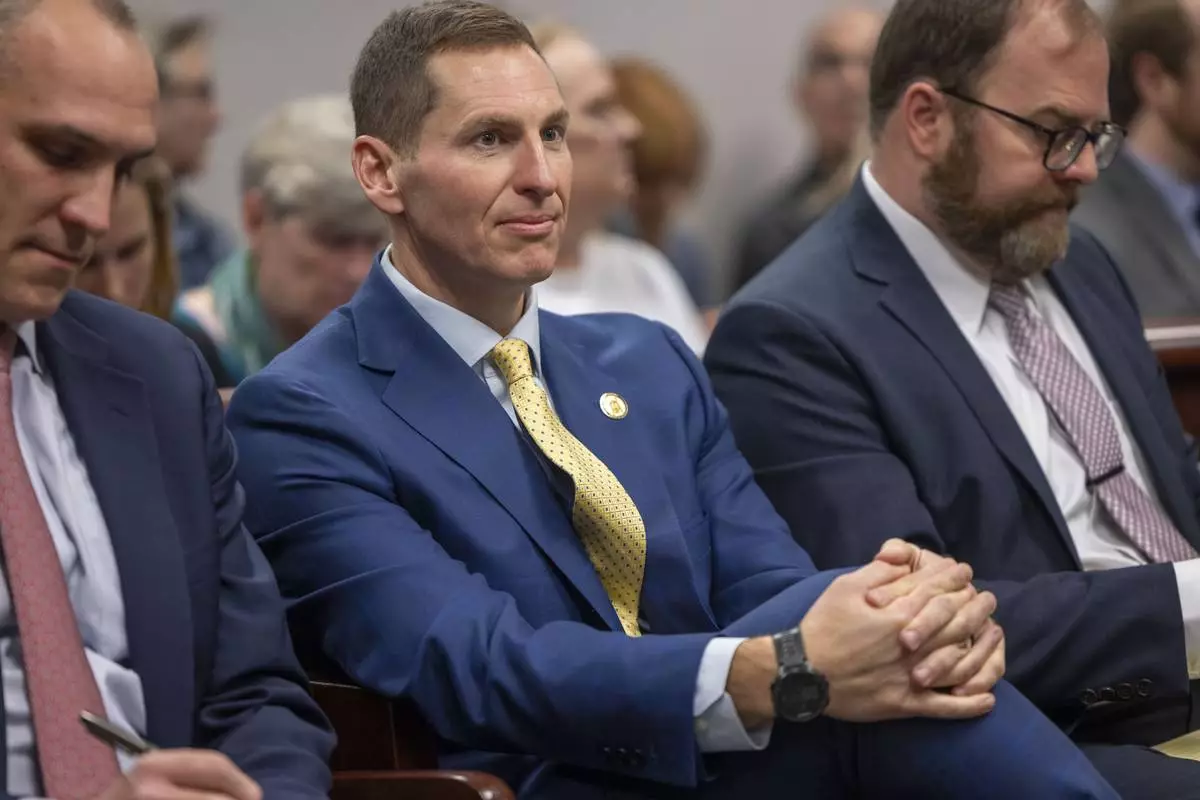
FILE - Judge Jefferson Griffin, the Republican candidate for the N.C. Supreme Court listens to testimony in Wake County Superior Court on Friday, February 7, 2025 in Raleigh, N.C. (Robert Willett/The News & Observer via AP, File)




